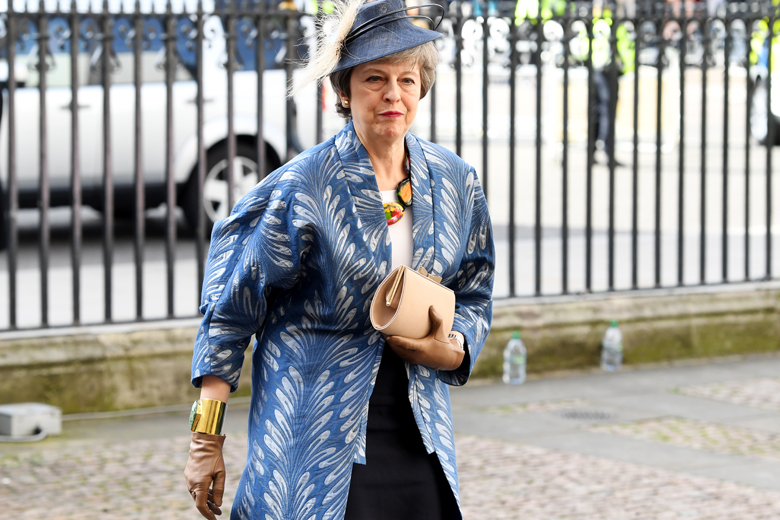British PM Theresa May expected in Strasbourg in late bid for Brexit breakthrough
Sign up now: Get ST's newsletters delivered to your inbox

British Prime Minister Theresa May is set to meet top European Union officials following a weekend of deadlocked talks and with less than three weeks to go before Britain's scheduled departure from the bloc.
PHOTO: EPA-EFE
LONDON (AFP) - British Prime Minister Theresa May is expected to travel to Strasbourg on Monday (March 11) for talks with European Union leaders, in a last-ditch bid to strike a Brexit deal on the eve of a crucial vote in Britain's parliament.
Mrs May is set to meet top EU officials following a weekend of deadlocked talks and with less than three weeks to go before Britain's scheduled departure from the bloc.
The embattled British leader is scrambling to formalise changes to her divorce deal, which was overwhelmingly rejected by MPs in January, in the hope of winning a new vote on the agreement in parliament on Tuesday (March 12).
Irish Foreign Minister Simon Coveney told reporters in Dublin that Mrs May would travel to Strasbourg - where the European Parliament is holding its plenary session this week - "to finalise an agreement, if that's possible".
However, in a sign of the fragility of the negotiations, a British government source promptly cautioned that the plans were not confirmed and said Coveney was "getting ahead of himself".
"Discussions are ongoing between ourselves and the EU," Mrs May's spokesman had earlier told reporters, insisting that Tuesday's vote would take place as planned.
Negotiations in London
A second defeat could see Britain end 46 years of ties with its closest trading partner on March 29 with no new arrangements in place, causing huge disruption on both sides of the Channel.
It would also raise the possibility of a delay to Brexit, with further votes on leaving without a deal and postponing Britain's departure date set for later in the week if Mrs May's deal falls.
While europhiles in May's Conservative Party would welcome a delay as a possible precursor to a second referendum on EU membership, eurosceptics strongly oppose it.
Hopes for a breakthrough in the talks looked slim earlier Monday, after the EU's chief negotiator Michel Barnier said it was up to Mrs May and British MPs to find a compromise.
"We held talks over the weekend and the negotiations now are between the government in London and the parliament in London," he said in Brussels ahead of Brexit discussions with envoys from the other 27 member states.
'It's up to Great Britain'
German Chancellor Angela Merkel echoed the comments, arguing the bloc had made "a large number of proposals at the weekend" to provide "much more legal clarity" over the contentious Irish "backstop", which has proved the key sticking point.
"We've made an important offer again towards Great Britain and now of course it's up to Great Britain to react to these offers," Dr Merkel said in Berlin.
Mrs May's deal was struck during more than a year of tough negotiations, and covers Britain's financial settlement, expatriate rights, the Irish border and plans for a transition period.
But MPs rejected it in January by 432 votes to 202, eventually voting for her to renegotiate the controversial backstop arrangement, which is intended to keep the Irish border open after Brexit.
This would keep Britain in the EU's customs union and parts of its single market until and unless another way - such as a trade deal - is found to avoid frontier checks.
Many MPs fear it is a "trap" to keep them tied to EU rules, but Brussels has rejected calls for a time limit or unilateral exit clause.
In the face of a revolt within her split cabinet, Mrs May has promised that if MPs defeat her plan, they will be able to vote Wednesday on whether to leave the EU with no deal, or the following day on seeking a delay.
But any postponement would have to be approved by the leaders of the other 27 nations, who are next meeting at a Brussels summit on March 21-22 - a week before Brexit day.


